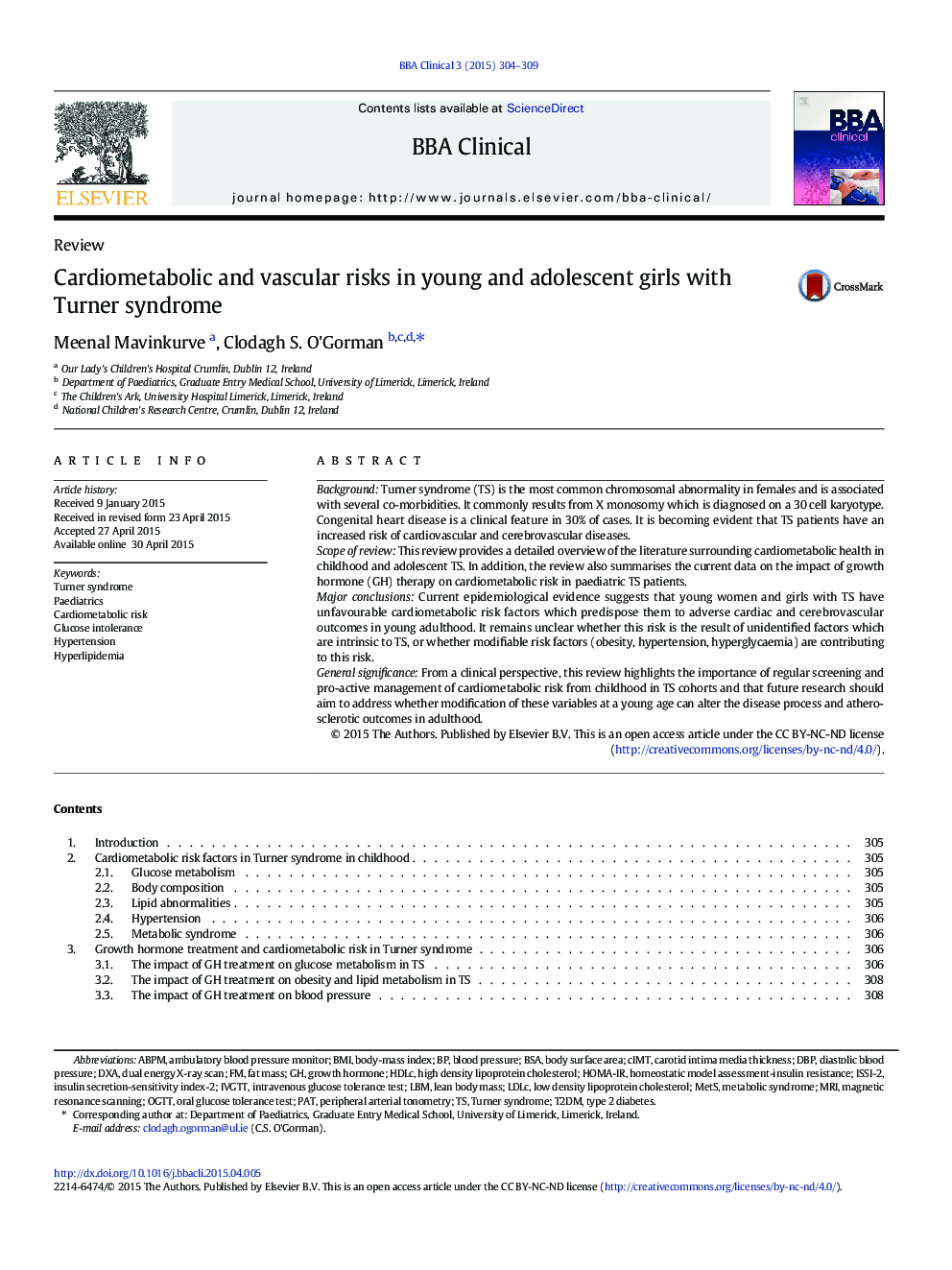| Article ID | Journal | Published Year | Pages | File Type |
|---|---|---|---|---|
| 2773115 | BBA Clinical | 2015 | 6 Pages |
•Increase in cardiovascular and cerebrovascular diseases in adult Turner syndrome•Cardiometabolic risk factors impact adult metabolic health and outcome.•Cardiometabolic risk factors in childhood Turner syndrome need careful assessment.•Future research should focus on early modification of these risk factors and outcome.
BackgroundTurner syndrome (TS) is the most common chromosomal abnormality in females and is associated with several co-morbidities. It commonly results from X monosomy which is diagnosed on a 30 cell karyotype. Congenital heart disease is a clinical feature in 30% of cases. It is becoming evident that TS patients have an increased risk of cardiovascular and cerebrovascular diseases.Scope of reviewThis review provides a detailed overview of the literature surrounding cardiometabolic health in childhood and adolescent TS. In addition, the review also summarises the current data on the impact of growth hormone (GH) therapy on cardiometabolic risk in paediatric TS patients.Major conclusionsCurrent epidemiological evidence suggests that young women and girls with TS have unfavourable cardiometabolic risk factors which predispose them to adverse cardiac and cerebrovascular outcomes in young adulthood. It remains unclear whether this risk is the result of unidentified factors which are intrinsic to TS, or whether modifiable risk factors (obesity, hypertension, hyperglycaemia) are contributing to this risk.General significanceFrom a clinical perspective, this review highlights the importance of regular screening and pro-active management of cardiometabolic risk from childhood in TS cohorts and that future research should aim to address whether modification of these variables at a young age can alter the disease process and atherosclerotic outcomes in adulthood.
